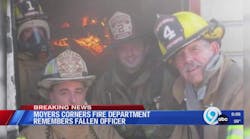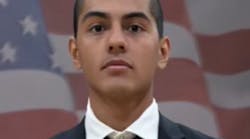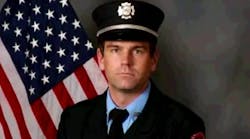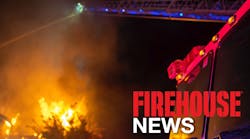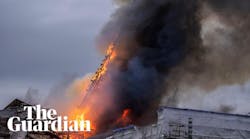Firefighters require both dependable global positioning systems (GPS) and dependable wireless communications to be effective. As many fire chiefs have expressed concern over potential interference with GPS and public safety communications systems presented by LightSquared’s new Long Term Evolution (LTE) broadband network, this column will serve as an informative overview.
Currently, the Federal Communications Commission (FCC) is overseeing a comprehensive and rigorous testing process to evaluate how GPS and a 4G LTE broadband system will work side by side. The FCC has stated that the broadband newcomer, LightSquared, may only launch service once the government is satisfied that potential interference concerns have been resolved. This is likely to be the largest-scale effort to prevent radio interference prior to a system launch in the U.S., ever.
While the FCC identified LightSquared as a newcomer, that is not really accurate. Under its predecessor name Sky Terra, the company launched its first satellite in 1996 and has been providing reliable and interoperable satellite voice and data services to first responders, public officials and federal agencies in urban, rural and remote areas. Many Gulf States emergency responders relied on LightSquared’s satellite network after Hurricane Katrina took down terrestrial networks.
Beginning in 2001, LightSquared sought permission from the FCC to use its spectrum to build a next-generation wireless network to compliment its satellite network. The concept was to seamlessly integrate satellite and terrestrial based wireless communications to provide reliable, affordable and ubiquitous wireless coverage for the entire United States.
LightSquared advised me that knowing its spectrum is so close to the GPS spectrum, it began to work with the GPS community almost 10 years ago to address concerns of unintended interference in the GPS bands. In 2002, LightSquared voluntarily agreed to limit its emissions levels below what even the FCC permitted to prevent its signal from crossing into GPS frequencies and spent millions of dollars developing filters for its cell site transmitters.
Though LightSquared has worked collaboratively over the years to make sure that its wireless network would operate without interfering with GPS, recently some GPS users, public safety and manufacturers raised new concerns about interference. So in January, the FCC required LightSquared and the GPS community to form a working group of technical experts to fully study the potential behavior of GPS devices and identify mitigation measures should they be required.
The working group, co-chaired by the U.S. GPS Industry Council and LightSquared, includes 35 technical working group members and 50 advisors from the GPS industry, federal government, device manufacturers, the cellular wireless industry and public safety, among others. The working group has established sub-teams with expertise in cellular, general location and navigation, high-precision, networks, timing and space-based receivers. Participants from the National Public Safety Telecommunications Council (NPSTC), Association of Public-Safety Communications Officials (APCO) International, Motorola Solutions and E911 represent public safety on the working group. The cooperative testing process is underway and the final report is due to the FCC in mid-June.
On a separate but important issue, LightSquared reports it is working with major infrastructure providers to voluntarily replace public safety critical fixed GPS timing device antennas that are operating near a proposed LightSquared transmitter. These new antennas have been proven to prevent GPS receiver interference. When such replacements are required, it will be done at no expense to public safety.
I will continue to follow the progress of the working group’s testing and its report to the FCC and will keep you apprised of the results and recommendations. I am impressed by LightSquared’s efforts to reach out to public safety organizations to inform them about its efforts and to seek our feedback. Based on the information I am sharing in this column, I believe LightSquared understands the critical need for reliable communications for first responders and is stepping up to ensure the systems can coexist.
